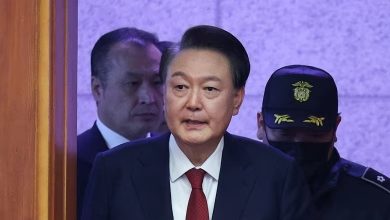Nigeria’s Bold Vision At The World Economic Forum

Nigeria’s Vice President Kashim Shettima’s robust engagement at the 2025 World Economic Forum in Davos represents more than just diplomatic posturing. It symbolises a critical inflection point for Africa – a continent long characterised by potential but constrained by systemic limitations.
The recurring narrative from Shettima’s interventions is unambiguous: Africa is no longer a passive recipient of global economic discourse but an active, strategic participant ready to shape its destiny.
His invocation of Napoleon Bonaparte’s observation about China awakening powerfully underscores this transformative moment.
At the heart of this narrative lies the African Continental Free Trade Area (AfCFTA), a potentially revolutionary mechanism for continental economic integration. The projected boost to Africa’s economy to $29 trillion by 2050 is not mere wishful thinking but a calculated strategic objective. With the continent possessing the world’s youngest population and emerging as a potential global talent reservoir, Africa stands at the cusp of unprecedented opportunity.
The demographic dividend is particularly compelling. By 2050, Nigeria alone is projected to become the third most populous nation globally, with 440 million people. This massive youth population represents both a challenge and an extraordinary potential for economic transformation.
The continent’s current technological landscape is already promising, with Nigeria boasting 220 million telecom subscribers and 163 million internet users – a robust foundation for digital economic expansion.
A critical insight emerged from the Davos discussions: while most global economies face workforce challenges, Africa’s young population positions it for unprecedented growth. The Korn Ferry study projecting a global human talent shortage of more than 85 million people by 2030 further underscores Africa’s strategic advantage.
However, realising this potential demands more than rhetorical enthusiasm. Shettima’s candid acknowledgment of existing deficits, coupled with a pragmatic approach to infrastructure development – like the proposed coastal highway from Calabar to Lagos and the ambitious West African gas pipeline – indicates a nuanced understanding of the challenges that have historically impeded African progress.
The Vice President’s stance on international partnerships is particularly refreshing. Rejecting the traditional aid-dependency model, he advocates for dignified, equal collaborations that recognise Africa’s intrinsic value. His declaration that he would “rather carry my poverty with dignity” and engage on a platform of equality represents a philosophical shift from supplication to strategic engagement.
In the considered opinion of this newspaper,Nigeria, as Africa’s most populous nation and largest economy, carries a significant responsibility in this continental renaissance.
The country’s commitment to digital transformation, technological innovation, and strategic investments in education and agriculture positions it as a potential catalyst for broader African development.
The proposed African Atlantic Gas Pipeline exemplifies this strategic vision. By connecting Nigeria to Morocco and other African countries, the project addresses multiple challenges simultaneously: it provides a solution to European energy security concerns, creates economic opportunities across multiple nations, and leverages Africa’s natural resources for sustainable development.
Similarly, the proposed recharging of Lake Chad represents a multifaceted intervention that goes beyond environmental restoration. By potentially expanding the lake from its current 2,000 sq. km to its historical 25,000 sq. km, the project addresses critical issues of food security, clean energy generation, and regional stability.
Yet, challenges remain formidable. Geopolitical tensions, internal conflicts, and persistent infrastructure deficits continue to challenge the continent’s growth trajectory. The recurring issues of corruption, institutional weakness, and uneven economic development cannot be overlooked.
In our view, for Africa to truly realise its potential, countries must prioritise institutional reforms, invest in human capital, and create enabling environments for innovation and entrepreneurship. The continent cannot afford to be a mere spectator in the global economic arena.
Shettima’s Davos interventions suggest a promising blueprint: leveraging demographic advantages, embracing technological disruption, fostering intra-African collaborations, and presenting a united, confident front to the world.
The crisis narrative that has long defined Africa is being systematically dismantled. As Shettima eloquently noted, drawing from Chinese linguistic wisdom, the word for crisis – “Wei Ji” – comprises two characters: “Wei” representing danger, and “Ji” representing opportunity. This perspective encapsulates Africa’s current moment – acknowledging challenges while simultaneously seeing them as catalysts for transformative change.
The interconnected nature of global challenges requires collective solutions. Multilateralism is not just a diplomatic nicety but a strategic imperative. Africa’s rich resources, strategic importance, and youthful population position it as a potential driver of global economic recalibration.
As Africa stands at this critical juncture, the words of late Nigerian leader Murtala Mohammed resonate more powerfully than ever: Africa has indeed come of age. The world must be prepared to engage with a continent that is no longer seeking permission but demanding its rightful place in the global economic ecosystem.







